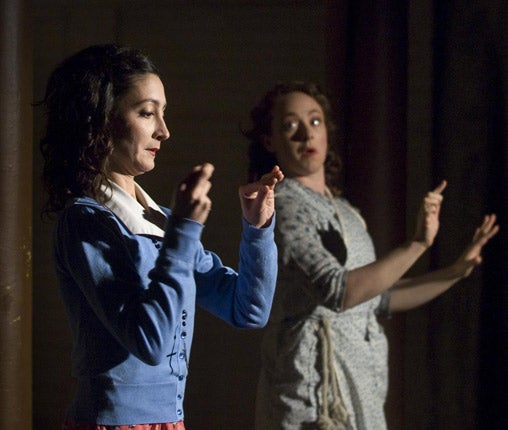The Mill - City of Dreams, Drummonds Mill, Bradford

Your support helps us to tell the story
From reproductive rights to climate change to Big Tech, The Independent is on the ground when the story is developing. Whether it's investigating the financials of Elon Musk's pro-Trump PAC or producing our latest documentary, 'The A Word', which shines a light on the American women fighting for reproductive rights, we know how important it is to parse out the facts from the messaging.
At such a critical moment in US history, we need reporters on the ground. Your donation allows us to keep sending journalists to speak to both sides of the story.
The Independent is trusted by Americans across the entire political spectrum. And unlike many other quality news outlets, we choose not to lock Americans out of our reporting and analysis with paywalls. We believe quality journalism should be available to everyone, paid for by those who can afford it.
Your support makes all the difference.When you are told to turn up for a night at the theatre dressed in "very warm" clothing and stout shoes it is clear that this is not going to be your typical kind of play.
Billed as a "new promenade production", The Mill – City of Dreams is more of a walking tour through the post-war history of Bradford's textile industry.
Set in the vast and eerie expanse of disused Drummonds Mill, Freedom Studios tell the story of the city's immigrants who came to man the looms and wash the worsted in what was even then a business model on the terminal slide.
Sadly, although there are some tender moments in this wonderfully atmospheric setting, the characters never truly come alive, dwarfed as they are by the size of the abandoned mill which is itself a desolate symbol for the fallen giant that is Bradford.
The script is based on writers Madani Younis and Jonathan Holmes's interviews with local immigrant communities, although perhaps by trying to be too faithful to the telling of these experiences they ended up blunting the potential for real drama.
Few would disagree that the arrival of Ukranians, Pakistanis, Italians and so many other nationalities seeking economic advancement and refuge in the wool trade made Bradford a unique place. But what was the real legacy of mass migration and industrial collapse in a single generation?
You only have to step outside the solid mill doors and stroll around the surrounding streets to experience both the infectious exuberance and sad poverty of the place. Bradford has real problems and no luck. The play is spot on in the way it parodies the recent vogue for luxury mill conversions. Yet pulses of rioting have left permanent scars and it was just a short walk from here that Crossbow Cannibal Stephen Griffiths plucked his victims – lost women whose lives had been abandoned to a nightmarish cycle of drugs and prostitution.
Meanwhile, Bradford's attempts to regenerate as a shiny new shopping destination have ended in little more than a giant and farcical hole in the ground – literally.
Immigrants have dreams – everyone does. And although the actors, including a community cast, do their best, their characters start and end as modern-day stereotypes. No one will be offended by them – except perhaps the descendants of the robotic and ruthlessly portrayed mill owners. Then again no one will be surprised either.
To 16 April (01274 730077)
Join our commenting forum
Join thought-provoking conversations, follow other Independent readers and see their replies
Comments